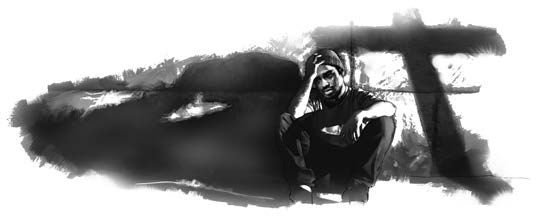After several weeks of deception, Elena realized that she was telling lies in order to worship God, and that wouldn’t be acceptable to Him. She decided to be truthful and accept the consequences.
But her father already suspected what she was doing. He watched her enter the widow’s house, then leave a half hour later. He went next door and asked for his daughter. The widow told him she had left, but she would return in a half hour. But that night Elena was so deeply touched as the speaker described how Jesus suffered for humanity that she couldn’t tear herself away before the service ended.
On her way home she thought, If God suffered so much for me, maybe I will have to suffer for Him, too. I will be faithful and look to Jesus for strength. She had no idea how soon her suffering would begin.
She returned to the widow’s home overjoyed by what she had heard. But the widow warned her, “Be careful; your father is angry.”
She found her father waiting for her at home. He yelled at her, demanding to know where she had been.
“I’ve been at the church,” she said. “I liked it very much.”
“You won’t go to that church again!” he yelled. “You will have nothing to do with Seventh-day Adventists ever again!” He went to her room and gathered all her religious books and tore them up. Then he threw them on a pile in the yard and burned them.
Her father tried every means he knew to convince Elena to stop this “non- sense.” But Elena had seen God’s better way and refused to disobey Him. When she told her father this, he shouted, “I would rather kill you than have a daughter who disobeys me! You are no longer my daughter!”
“OK,” she said. “If you won’t let me be your daughter, then I will be the daughter of God!”
One Sabbath, Elena awoke and found everyone sleeping. She decided to go to church in spite of her father’s threats to beat her. As she prepared to leave the house, he saw her. “Where are you going?” he asked.
“To the Adventist church,” she answered.
“OK,” he said calmly. “But don’t stay long.”
Later, Elena’s father saw her come home and asked, “Who said you could go to the church?”
“You did,” Elena said.
“When?” he asked, confused.
“This morning. Don’t you remember?”
The tension between Elena and her father made it difficult for her to remain in the home. But Elena had nowhere else to go.
